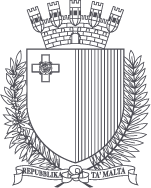Speech by the Hon. Carmelo Abela, Minister for Foreign Affairs and Trade Promotion of the Republic of Malta at the University of Birzeit, Palestine. Wednesday, 20th June 2018
President of Birzeit University, Acting President of An Najah University, distinguished guests, students, dear friends.
It is an honour for me to address you at this prestigious institution, a renowned seat of learning which continues to play a pivotal role in Palestinian identity, culture, and social life.
I felt it was appropriate today, being so close to the Eastern shore of the Mediterranean, to focus on Malta’s “Mediterranean vocation”. This vocation can be understood as a consequence of Malta’s geopolitical position in the centre of the Mediterranean. Peace, stability, and prosperity in the Mediterranean represent Malta’s vital national interest and objective.
As a small island, bare of resources except for its enterprising people, and conscious of its strategic location, Malta has consistently advocated for dialogue, tolerance, cooperation, and the respect of democracy and the rule of law. In essence, effective multilateralism and the rules-based international order marries well with Malta’s vital national interest. This approach is not just a matter of consequence, but is also rooted in a strong belief. The influence of being an island-nation with a millennial historical legacy distinguished by foreign rule and war has moulded Malta’s predisposition as a bridge-builder across the Mediterranean.
Besides being Mediterranean, Malta is also European. Hence, Malta’s Mediterranean vocation takes on, by nature, a Euro-Mediterranean dimension. It has always been Malta’s belief that European and Mediterranean security are firmly connected. Malta’s dominant Euro-Mediterranean foreign policy agenda is evident when one highlights the plethora of trans-Mediterranean initiatives that Malta has supported for decades.
Worth noting is Malta’s interest in having a Mediterranean component within the work of the Organisation for Security and Cooperation in Europe (known as the OSCE). Malta’s efforts led to the inclusion of a Mediterranean Chapter in the 1975 Helsinki Final Act. The OSCE today has a Mediterranean Partnership for Cooperation with Algeria, Egypt, Israel, Jordan, Morocco, and Tunisia because of Malta’s insistence that there can be no security in Europe without security in the Mediterranean.
More recently, on the 4th of June 2015, Malta proposed the appointment of a Special Representative for the Mediterranean to the OSCE Permanent Council. Malta argued that events that have been unfolding in the Mediterranean, with direct repercussions for Europe and the OSCE area, have made it crystal clear that the OSCE needs to play a stronger role in the Mediterranean if it is to holistically address its own security.
In the 1990s, Malta was an avid advocate for a Council or Association of the Mediterranean. At the 5+5 Western Mediterranean Forum Meeting held in Algiers in 1990, Malta proposed a framework of cooperation whereby, through non-rigid arrangements, one could achieve a setting for the development of a common understanding on issues such as intolerant fundamentalism, migration, and the root causes of tension. This proposal eventually evolved into the Barcelona Process and, later, into the Union for the Mediterranean.
Malta believes that it is the common interest of all the countries of the Mediterranean to address – together – the shared threats and challenges in an effective and concerted manner. In this context, the regional organisations and initiatives in the Euro-Mediterranean area offer the appropriate framework to address these threats and challenges, but also for the enhancement of dialogue and cooperation with a view to tap into the full potential of the Northern and Southern shores of the Mediterranean.
It is in this spirit that Malta actively participates in regional political initiatives such as the Union for the Mediterranean; the 5+5 Dialogue; the Anna Lindh Foundation; and the Mediterranean Group of EU Member States (known as the Med 7). These have distinct but complimentary mandates, as I shall outline.
The Union for the Mediterranean is an ideal platform for confidence-building and tangible project-based cooperation among European and Mediterranean countries.
It does this particularly by bringing key actors in the region together around the same table. The Union for the Mediterranean is unique in that it is the only international setting within which the Israelis and the Palestinians enjoy the same status and can work together normally and cooperate, including on matters of shared interest. Malta fully supports the efforts undertaken by the Union for the Mediterranean to amplify its work on regional cooperation and integration. The Union for the Mediterranean’s activities address the three strategic objectives of the region: Human Development, Stability, and Integration. Malta was active in this setting as from the very beginning.
The magnitude of the current regional challenges calls, more than ever, for regional solutions. The Union for the Mediterranean successfully brings together diverse actors for regional cooperation, based on common strategies that represent the commitment of its 43 Member States to a regional agenda for peace, stability, and inclusive growth.
There are 28 labelled projects by the Union for the Mediterranean pertaining to Human Development, and 23 projects in regional sustainable development. Two major Union for the Mediterranean labelled projects that will directly impact Palestine, need mentioning here.
The Desalination Facility for the Gaza Strip is a landmark project promoted by the Palestinian Government, which will help address a major water deficit for an ever-increasing population of currently 2 million people in the Gaza Strip. In June 2011, the 43 Member States of the Union for the Mediterranean unanimously endorsed the project, which has been developed in partnership with major international stakeholders, including the European Commission, the European Investment Bank, the Islamic Development Bank, and the World Bank, as the most sustainable option to stabilise the aquifer and secure the water supply of Gaza.
The project has witnessed important developments in the last years, particularly in securing political support by all parties concerned; finalising the technical studies; and ensuring financial and governance sustainability. By addressing water scarcity, which could be a driver of conflict, and by creating better prospects and job opportunities for young people, this project helps to decrease social tensions and promote stability in the region.
The second project I’d like to mention is the Multi-Site Urban Regeneration Project in Jericho, which will improve living conditions for 50,000 inhabitants of the city and of the Jericho Governorate by reorganising and upgrading important public and leisure facilities and extending the city’s green spaces. These interventions will bring about the revitalisation of those areas, benefiting commercial activities and local economic development. The project also aims to address the environmental and social needs of the population of one of the oldest continuously inhabited cities in the world.
This Project is promoted and administered by the Municipality of Jericho and, labelled in 2016 by the Union for the Mediterranean, will make Jericho more attractive for locals as well as visitors. Neighbourhoods will be revitalised and commercial and other activities stimulated.
These projects are a testimony of regional dialogue and cooperation; success stories that can bring about stability and promote peace.
The Anna Lindh Foundation, as the Union for the Mediterranean’s civil society and intercultural platform, facilitates sharing congruency in inter-cultural dialogue between civil societies. Here I wish to note the landmark MED FORUM, which was held in Malta in October 2016, and which was the largest youth and civil society gathering of its kind for the promotion of intercultural dialogue in the Euro-Mediterranean region.
It provided an important platform for the Foundation’s future action and the launch of the “Young Mediterranean Voices” initiative, offering a new space for constructive debate and intercultural dialogue among young people from both sides of the Mediterranean. Malta continues to actively extend its support to the Anna Lindh Foundation. Earlier last month, my Ministry hosted the first Strategic Partners’ Forum meeting for the Young Mediterranean Voices. I certainly look forward to the amplification of this interface with the Anna Lindh Foundation.
Additionally, at the sub-regional level, Malta is a strong supporter of the 5+5 West Mediterranean Dialogue, which brings together the five Southern countries of the Western Mediterranean with the five Northern counterparts. It represents an informal, flexible, and practical partnership for dialogue towards peace, security, stability, and sustainable economic and social development. Malta hosted the second 5+5 Heads of Government Summit back in 2012.
On the 21st of January this year, at the meeting of Foreign Ministers held in Algiers, Malta assumed the northern co-presidency of the 5+5 for the next two years. Accordingly, Malta will host the next meeting of Foreign Ministers of the 5+5 in January 2019.
Malta’s Mediterranean vocation is also evident in its role and positioning within the European Union. Malta is a member of the MED 7, the group of seven southern Member States. The advancement of the Mediterranean political agenda within the European Union is the main goal of this group. This has been evident in the recent review of the European Neighbourhood Policy.
The long-term goal of the European Neighbourhood Policy remains the development of an area of shared stability, security and prosperity with Europe’s neighbourhood. Membership in the European Union has added another dimension to Malta’s Mediterranean policy.
It has concurrently has augmented Malta’s capacity to set and advance the Mediterranean agenda at the European level. This was especially reflected during Malta’s first Presidency of the Council of the European Union in the first half of 2017, whereby the Mediterranean was a horizontal main priority.
A mention should also be made to the challenge of migration, human smuggling, and trafficking to the European Union but also to the region as a whole. Malta is pleased that the principles of solidarity, partnership, and shared responsibility from the Valletta Summit, held in Malta in November 2015, will continue to guide the European Union and its African partners’ response. Malta was instrumental in hosting the Valletta Summit between the European Union and the African Union, which was entirely dedicated to discussing the challenges and opportunities of migration. The Malta Declaration on the external aspects of migration was adopted at the Malta Summit of European Heads of State and Government in February 2017.
The crises confronting a number of countries in the Mediterranean are of great concern. Of note is the situation in Libya. Libya’s political transition towards a stable and functioning country through an integrated approach is a priority for Malta. Throughout the troubled and protracted aftermath of the 2011 revolution, Malta has consistently emphasised the importance of inclusiveness and Libyan ownership of a political process as the way forward for Libya.
Malta fully supports the efforts of the United Nations, which is seeking elections in Libya due to a political stasis. In this regard, Malta emphasises the need for the adoption of a Constitution and an electoral legal framework before elections, also as outlined in the Paris Declaration of the 29th of May
The situation in Syria remains a source of serious concern in terms of stability and peace in the Mediterranean and in the Middle East. Civil war in Syria has been the greatest source of instability for the Mediterranean in the past few years.
Its consequences are to continue to be felt for years to come, in neighbouring countries and in others which continue to host Syrian refugees. The onset of a genuine political transition is imperative for a truly sustainable solution to the conflict in Syria, in line with UN Security Council resolution 2254.
Malta deems that such a solution is also necessary to address the significant security concerns emanating from Syria, such as the proliferation of chemical weapons as well as terrorism. Syria is also facing the predicament of lost generations. The number of children and young people who know nothing else except war, counts in the millions now.
On the situation here, allow me to reiterate that Malta remains fully committed to the resolution of the Israeli-Palestinian conflict on the basis of a two-State solution that meets the aspirations and security needs of the Israelis and Palestinians alike.
In this context, actions which undermine prospects for the two-State solution, including settlements, which are illgeal under international law and exacerbate instability in the region, must be avoided.
In this regard, Malta believes that a political horizon towards the resolution of this conflict is urgently required, devoid of violence, where all parties partake in talks around the same table. Malta has, in the past, constantly supported the Palestinian cause and will continue, whenever the occasion arises, to support endeavours that seek to find an early solution to this conflict.
Furthermore, Malta regrets the unilateral decision taken by the President of the United States on Jerusalem, and expresses its deep concern about possible repercussions while firmly reiterating its position that the future status of Jerusalem must be mutually agreed upon through meaningful peace negotiations between Israel and the Palestinians.
On a bilateral level, I am pleased to note that, later today, Malta and Palestine will be signing two Memoranda of Understanding on Cooperation in the fields of Agriculture, Fisheries, and Animal Health, and another in the field of Judicial Cooperation.
Furthermore, we have decided to convene the Malta-Palestine Intergovernmental Joint Committee, with the aim of consolidating even further cooperation in the fields of education, culture, trade, and social affairs. Besides, the Malta Chamber of Commerce and the Federation of Palestinian Chambers of Commerce, Industry and Agriculture will also sign a Memorandum of Understanding with a view to increasing cooperation.
Together with my delegation, I will also be visiting the Jalazoun refugee camp to express our solidarity with the refugees and to UNRWA, both at this camp and elsewhere, for the hard work and resilience.
In conclusion, and with a look ahead, Malta’s “Mediterranean vocation” is the consistent pursuit of dialogue for peace, stability, and prosperity in the Mediterranean. It represents the principal credential with which Malta is bidding for a non-permanent seat at the United Nations’ Security Council for 2023-2024.
Basing this bid on its reputation and credentials as a bridge-builder and a voice for peace in the Mediterranean and beyond, Malta, with its historical and natural vocation for peace, shall continue to serve as a voice for dialogue and cooperation in the Mediterranean, rooted in the firm belief that such a state of play in the Mediterranean is crucial for international peace and security.
I wish to take this opportunity again to thank you all for your interest in Malta and to thank the esteemed management of this University for providing me with an opportunity to exchange views on several issues of mutual interest. I certainly look forward to work closer with this University to make this desire a reality.






